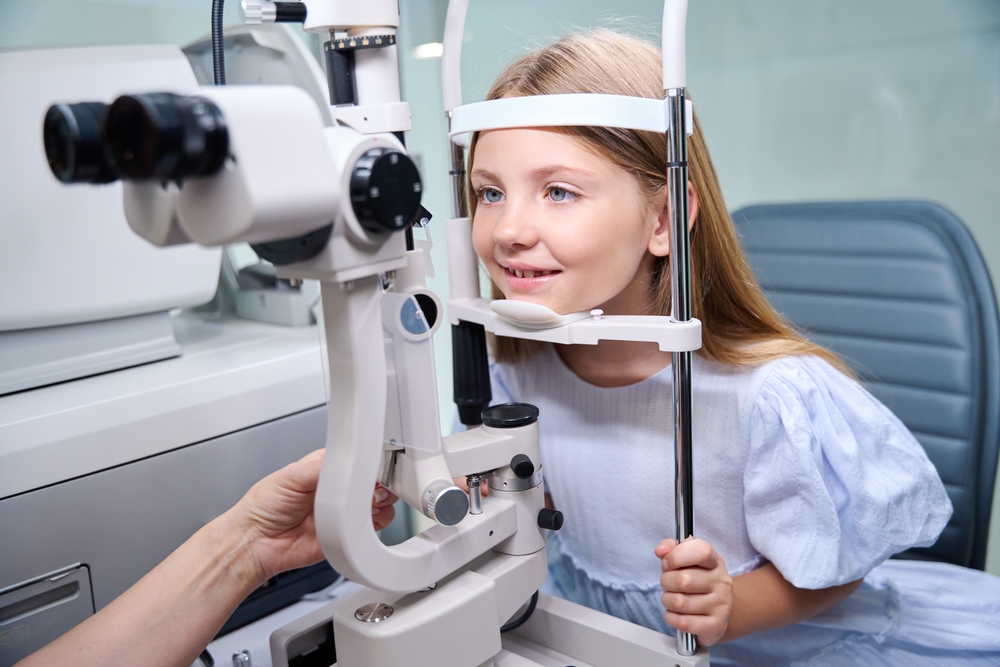
Vision is a complex process that involves the coordination of the eyes, brain, and nervous system. During the formative years, a child's visual system undergoes significant development, making it essential to monitor their eye health and catch any potential problems before they have a lasting impact. By scheduling regular pediatric eye exams, you can proactively address vision-related concerns and ensure your child's visual abilities are on track.
Common Eye Conditions in Children
Children can experience a variety of eye conditions that, if left untreated, can lead to long-term vision problems or even vision loss. Some of the most common eye conditions in children include:
• Refractive Errors: This includes nearsightedness (myopia), farsightedness (hyperopia), and astigmatism, which can cause blurred vision and affect a child's ability to see clearly.
• Amblyopia (Lazy Eye): This condition occurs when one eye develops weaker visual acuity compared to the other, often due to a difference in refractive power or a misalignment of the eyes.
• Strabismus (Eye Misalignment): Characterized by the eyes not working together, this condition can cause double vision, eye strain, and, in some cases, amblyopia.
Early detection and treatment of these eye conditions are crucial, as they can significantly impact a child's visual development, academic performance, and overall quality of life.
Signs That Your Child May Need a Pediatric Eye Exam
Recognizing the signs that your child may need a pediatric eye exam can help you take proactive steps to address any vision-related concerns. Some common signs to look for include:
• Squinting or Frequent Eye Rubbing: If your child squints or rubs their eyes excessively, it could be an indication of refractive errors or other vision problems.
• Frequent Headaches or Eye Strain: Persistent headaches or eye strain, especially during or after visual tasks like reading or using digital devices, may signify an underlying vision issue.
• Difficulty Focusing or Paying Attention: Vision problems can make it challenging for a child to focus in school or during other activities, leading to behavioral or academic challenges.
• Covering or Closing One Eye: This could be a sign of amblyopia or strabismus, as the child may be trying to compensate for the weaker eye.
• Frequent Clumsiness or Coordination Issues: Poor depth perception or eye-hand coordination can contribute to a child's physical clumsiness or difficulty with sports and other activities.
• Tilting the Head or Closing One Eye When Focusing: These behaviors may indicate a refractive error or other vision problem.
If you notice any of these signs in your child, it's important to schedule a comprehensive pediatric eye exam as soon as possible.
The Importance of Early Detection and Treatment
Early detection and treatment of vision problems in children are vital for their development and academic success. Vision plays a key role in how children interact with the world, and undiagnosed vision issues can significantly impact their growth. Delayed visual development can occur when problems with eye coordination or visual processing are present, affecting a child's ability to learn and explore.
Academically, vision problems can make it difficult for children to read, write, and perform other visually demanding tasks. This can lead to struggles in school and even contribute to learning disabilities. In addition to academic challenges, children with untreated vision issues may face behavioral and social difficulties, as frustration and withdrawal can arise from the inability to see clearly or focus properly.
Untreated eye conditions can also worsen over time, posing long-term risks to a child’s vision health. Identifying and addressing these issues early can prevent more severe problems in adulthood. Regular pediatric eye exams are essential to catch any potential vision concerns, helping to ensure children maintain healthy vision and reach their full potential.
Schedule Your Child's Eye Exam with Pycraft Family Eye Care Today
Regular pediatric eye exams are a vital part of ensuring your child's visual development and overall well-being. By being proactive and recognizing the signs that your child may need an eye exam, you can take the necessary steps to address any vision-related concerns and set them up for a lifetime of visual health and success.
At Pycraft Family Eye Care, we are committed to ensuring your child's vision is on the right track. Visit our office in Wooster or Orrville, Ohio. Please call (330) 601-0393 or (330) 682-1276 to schedule a pediatric eye exam and take the first step towards safeguarding your child's vision and eye health.








